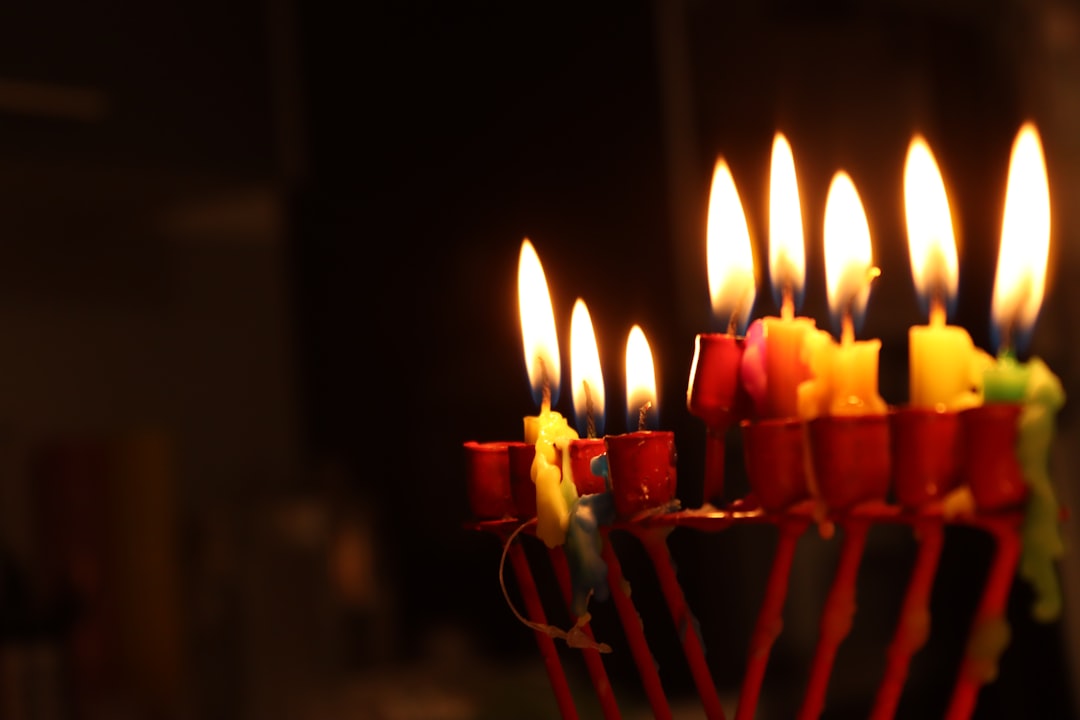News that Dawn Arnold, the Mayor of Moncton, New Brunswick, has refused to display a menorah on city property this year, for the first time in two decades, has half the country shaking their heads in disbelief.
Arnold claims that a menorah would violate the state’s neutrality toward religious faiths. But evidence shows plenty of Christian religious symbols on city property, including Christmas angels, so this is not about religious neutrality. There is something decidedly political about it.

Banning menorahs on city property might seem like a cool thing to do for a secularist. Still, assuming the mayor isn’t being disingenuous about her motivations, one has to wonder about the wisdom of the decision. Is this the year for a Canadian public official to reject Jewish symbols?
In the last two months, there have been several concerning incidents targeting the Jewish community in Canada. In Montreal, a Jewish school was vandalized with anti-Semitic graffiti, a Jewish daycare has received gunfire twice and a synagogue has been attacked with Molotov cocktails. In another incident, a synagogue in Toronto received a threatening letter containing anti-Semitic language and imagery. Jewish schools have received bomb threats. Regrettably, there have also been other instances of arson targeting Jewish institutions. For example, a firebomb was thrown at a Jewish community centre in Winnipeg, causing damage to the building and endangering the lives of those inside. Furthermore, incidents of online hate speech and harassment have been on the rise, with Jewish individuals being targeted with anti-Semitic slurs and threats on various social media platforms. All of this is taking place in the shadow of the atrocities Hamas committed against peaceful Jewish civilians in Israel.
These incidents serve as a reminder of the persistent presence of anti-Semitism. Such threats target the physical safety of individuals and aim to create a climate of fear and intimidation within the Jewish community. If we take the graffiti offence, for instance, on its face paint on a wall is a minor issue, but within it lies an act of hatred and its principal purpose is to instil fear among the Jewish community. These acts of violence pose a direct threat to the safety of individuals and contribute to a climate of hostility and intimidation.
It is essential to recognize the impact of such events on the affected individuals and the wider community. Terrorizing and intimidating people based on their ethnicity or religious faith is a despicable act. And let’s remember that these events of the last two months come on the heels of already increasing anti-semitism in Canada in the last 5 years. Mayor Arnold’s actions are not the welcoming actions Atlantic Canadians are renowned for. Arnold now stands, I hope unwittingly, among people who make Jews feel uncomfortable and unwelcome in this country.

The ban on public menorah displays in Moncton raises important questions about the balance between human decency and the blind application of rules. It raises the question of wisdom and prudence. It raises the question of Maritime hospitality. It raises questions about the kind of country we want to be. It raises questions about the mayor’s wisdom.
Share Haultain Research Substack
In light of these concerning events, the symbolic power of the menorah takes on heightened significance. The menorah is a traditional Jewish symbol. It holds profound meaning in the Jewish faith. Typically lit during the festival of Hanukkah, the menorah represents the miracle of a small amount of oil lasting eight days, emphasizing endurance and resilience. In times of darkness, the menorah becomes a beacon of hope, symbolizing the triumph of light over adversity.
In this Season of Advent, Christians too reflect on the symbol of light for they see Christ and His message as a light upon the world. The opening verses of the Gospel of John speak of light shining in the darkness, and the darkness not overcoming it. This shared theme of light overcoming darkness connects the Jewish and Christian traditions, highlighting a common understanding of hope and perseverance. In times of war, in times of darkness, this is a message even secular people might welcome. Mayor Arnold could stand to learn from the lessons of these experiences.
The menorah thus becomes a powerful metaphor for the broader challenges peaceful communities face, including the Jewish community in Moncton. In times of rising tensions and targeted attacks, the menorah becomes a symbol of religious freedom and the resilience of the human spirit.
While Arnold may argue for neutrality, the ban is a departure from the principles of religious inclusivity that Canada holds dear. Canadians recognize the diversity of the peaceful faiths that enrich our society, and the necessity to safeguard the right to express one’s faith in a public space. Faith is a guiding force that also offers solace in times of turmoil. It seems callous and cruel to want to deny Jews a small expression of their faith reflected in a public building on a year like this one.
Mayor Arnold would do well to reflect on her decision. Her menorah rejection serves as a poignant reminder of the need for communities to come together and support our beleaguered Jewish brothers and sisters, instead of adding to their anxiety and fear. In the spirit of Hanukkah, the mayor would do well to find light within herself and share it with others.
Mayor Arnold’s banning of the Jewish light symbol in Moncton, rather than dimming the light, has the potential to ignite a broader conversation about religious tolerance and the shared values that unite us in our different faiths. The story of the menorah and its symbolic resonance in the face of adversity ironically provides a lens through which we can examine the ban on public displays in Moncton.

By drawing parallels with the Gospel of John, we can connect with the shared narrative of light prevailing over darkness. In these challenging times, embracing the symbolism of the menorah can inspire a commitment to personal and religious freedom. Canada is, from the days of the 1763 Royal Proclamation, a country carved also to protect the religious freedoms of a minority, fostering a society where diverse traditions coexist and thrive in orderly peace.
Happy Hannukah, everyone!


Share Your Thoughts